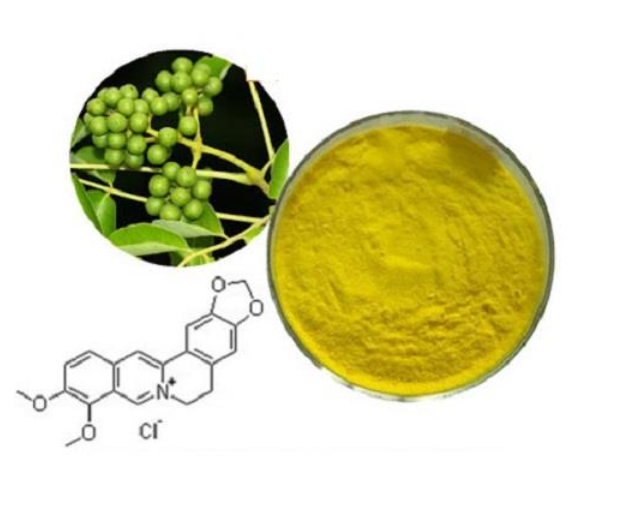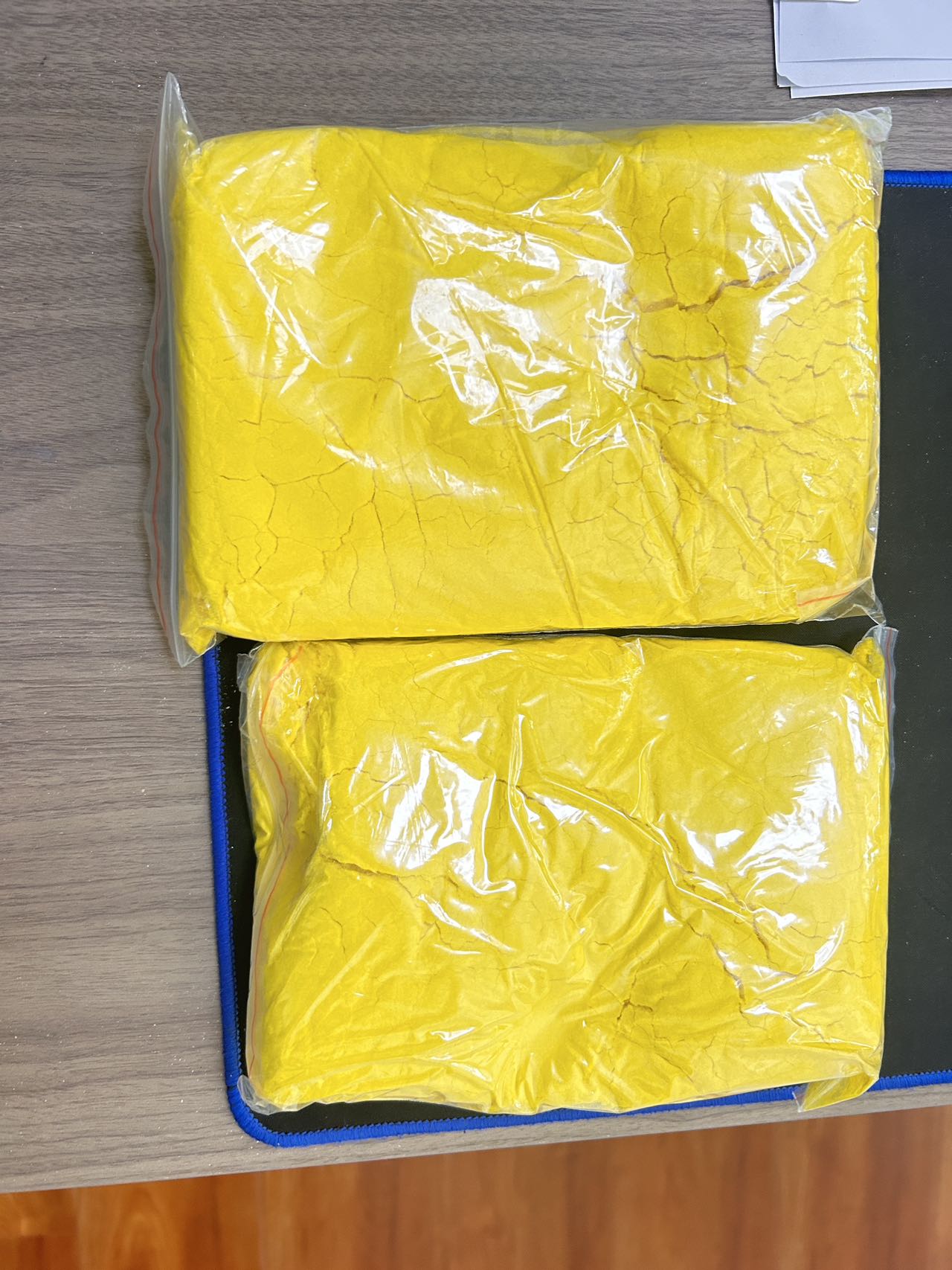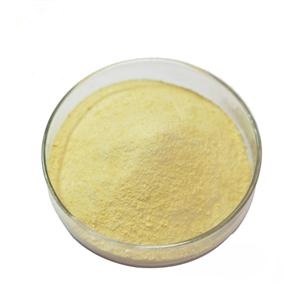
Berberine hydrochloride is a light yellow crystalline powder; The smell is slight and the taste is bitter.
Berberine hydrochloride (CAS 633-65-8) has been used in clinic for a long time as an antiseptic and antipyretic drug. It is often used in the treatment of dysentery, acute gastroenteritis, chronic cholecystitis, conjunctivitis, suppurative otitis media and other diseases, and has significant curative effect. Berberine hydrochloride is an isoquinoline Chemicalbook alkaloid, which exists in many plants of 4 families and 10 genera, such as Berberine family. Yellow acicular crystals of berberine can be precipitated from ether. Berberine is a quaternary ammonium alkaloid, and its salts have a relatively small solubility in water, such as 1∶500 for hydrochloride and 1∶30 for sulfate.
Berberine has antibacterial effect on hemolytic streptococcus, Staphylococcus aureus, gonorrhoeae, Fredricki and Shigella dysenteriae, and can enhance white blood cell phagocytosis. Chemicalbook salt of berberine (commonly known as berberine hydrochloride) has been widely used in the treatment of gastroenteritis, bacillary dysentery, tuberculosis, scarlet fever, acute tonsillitis and respiratory infection also has a certain effect.
Berberine hydrochloride can be used as an antibacterial drug to treat intestinal infections caused by Bacillus dysenteriae,It can also be used as a raw material for intestinal infections such as gastroenteritis and bacillary dysentery caused by sensitive pathogens.
Berberine hydrochloride is highly toxic and flammable, it needs to be stored in a low temperature, ventilated and low dry environment, and stored separately from food.


